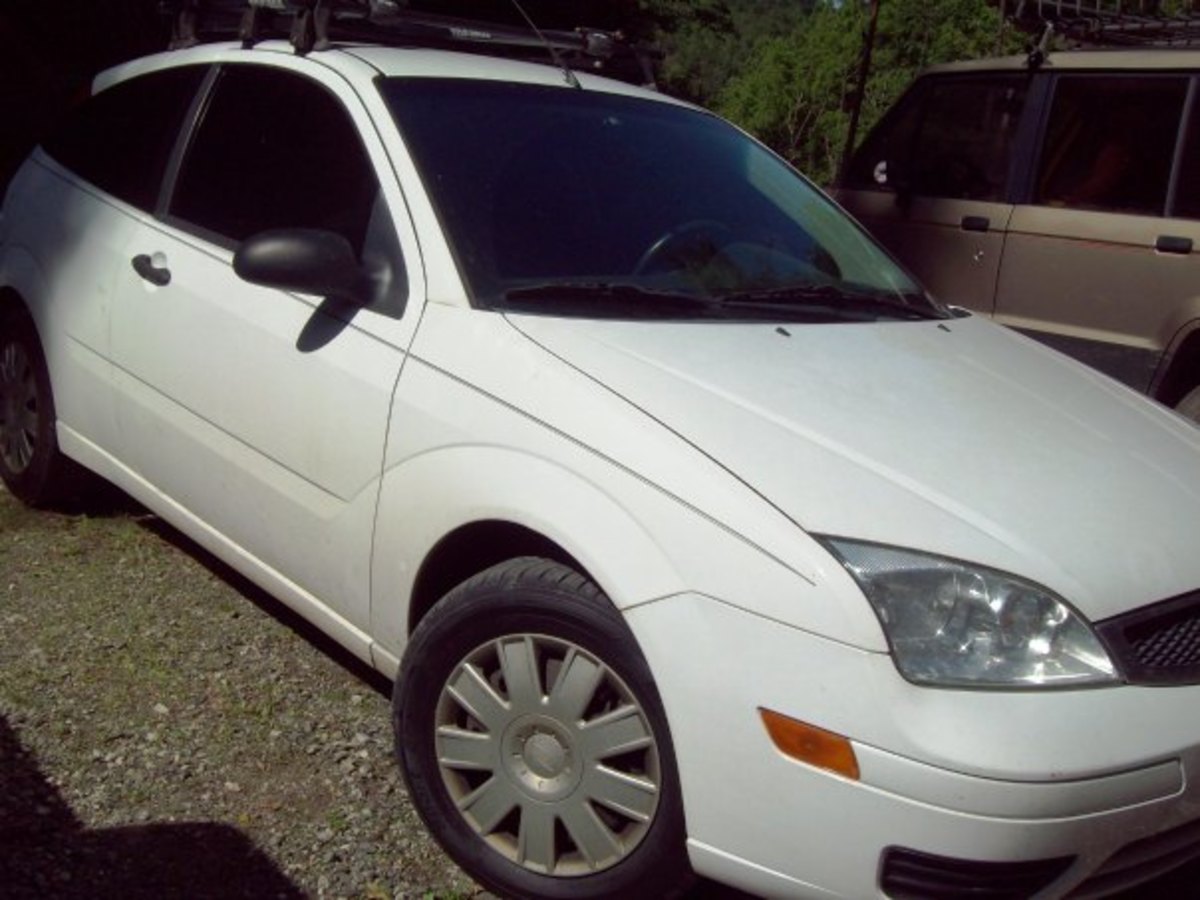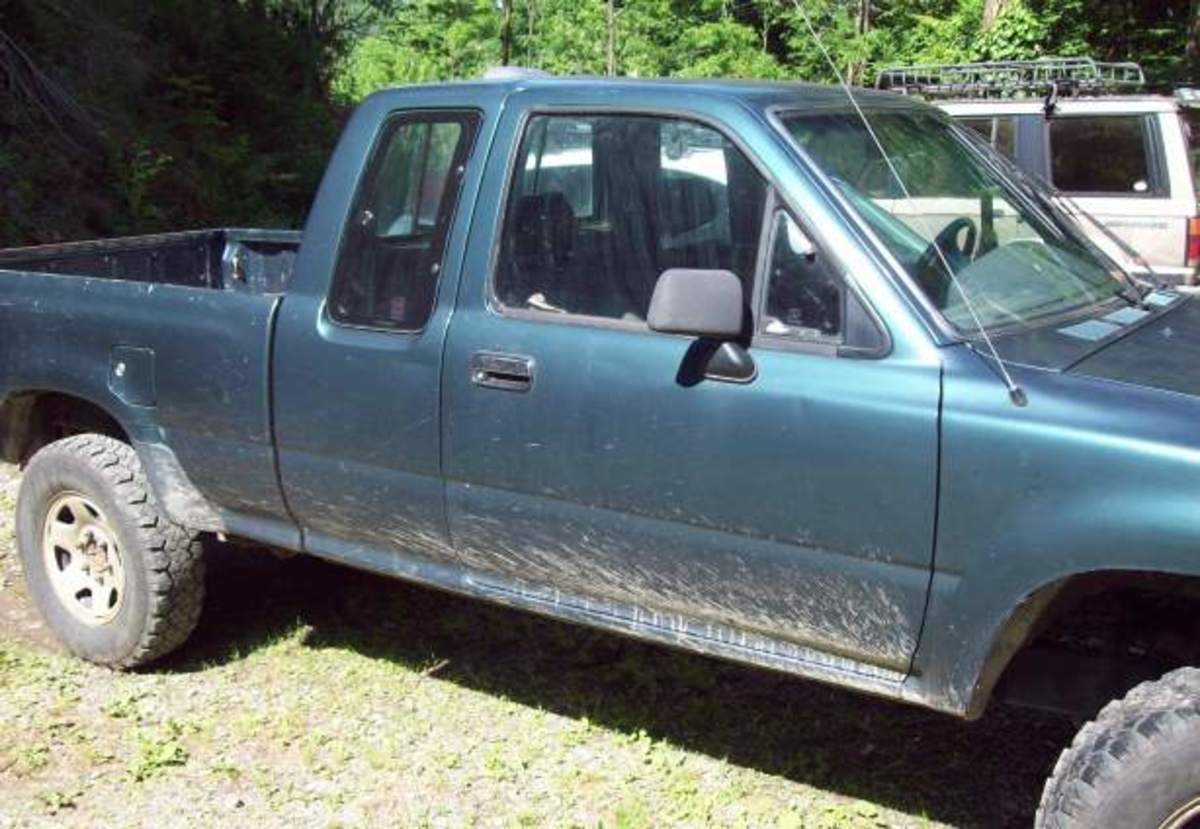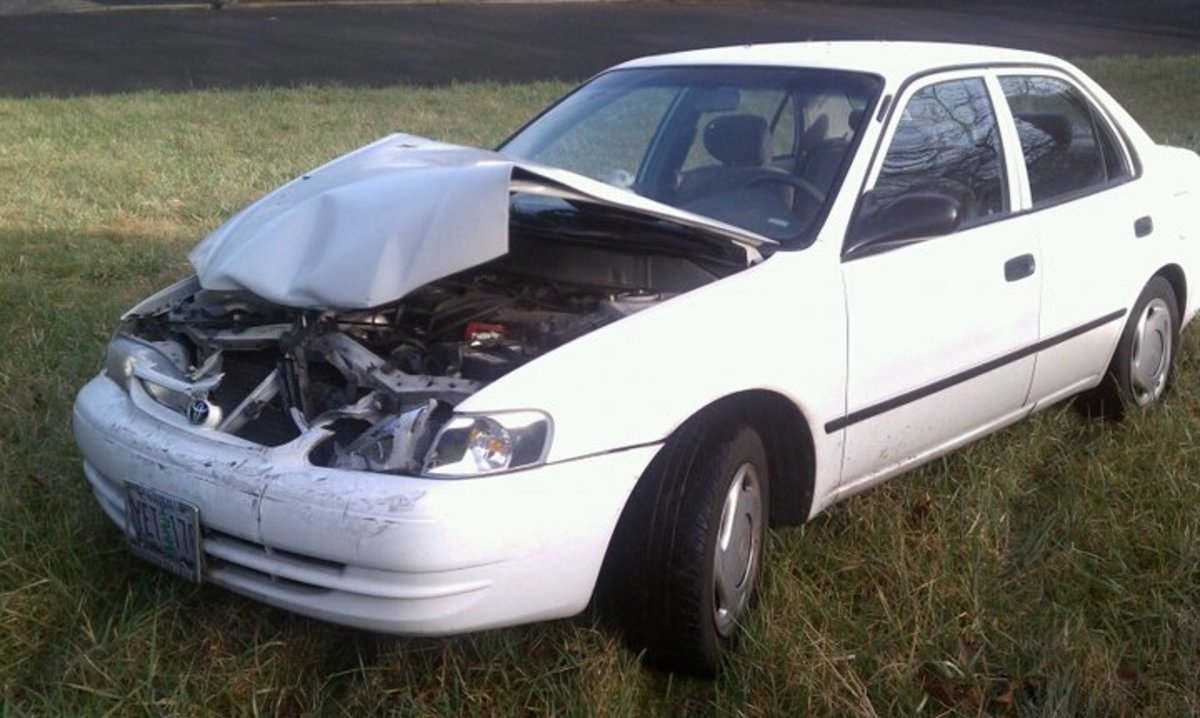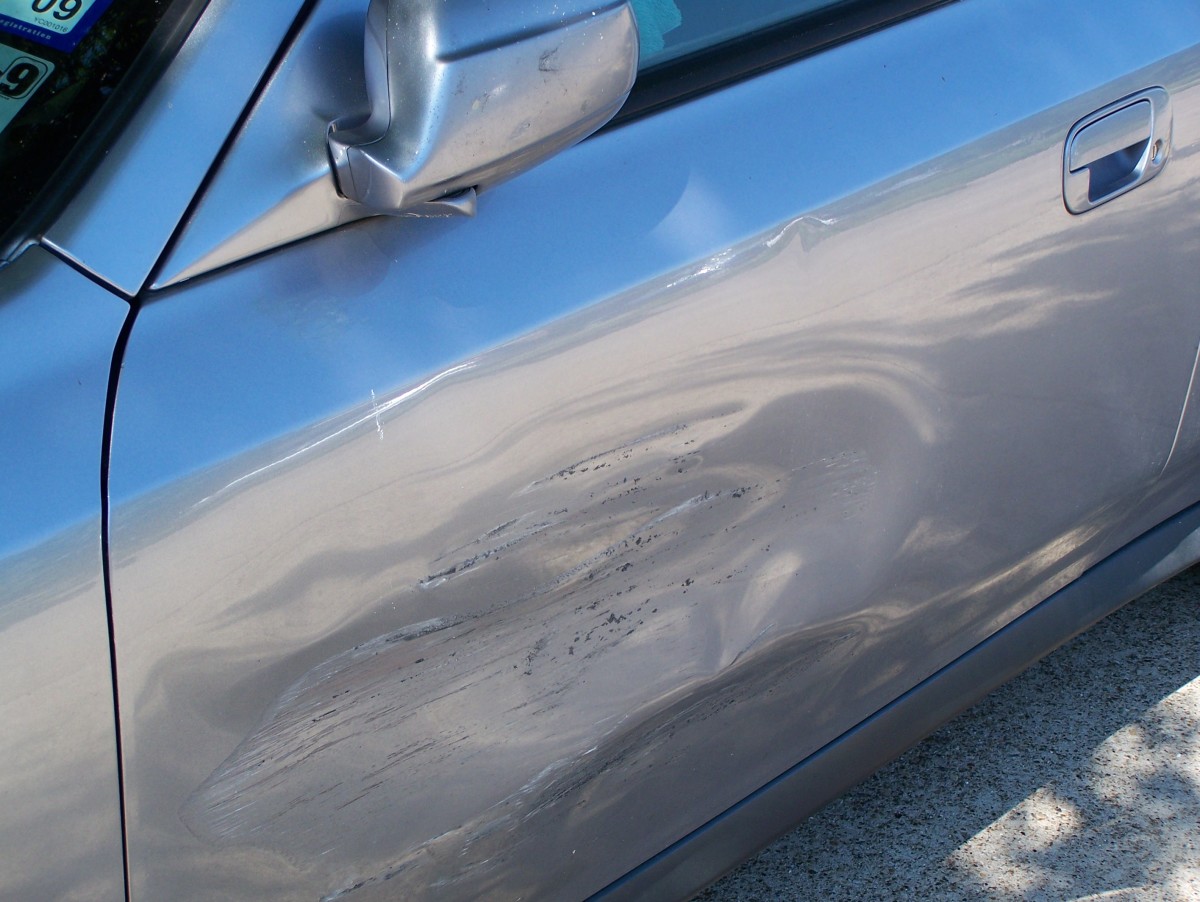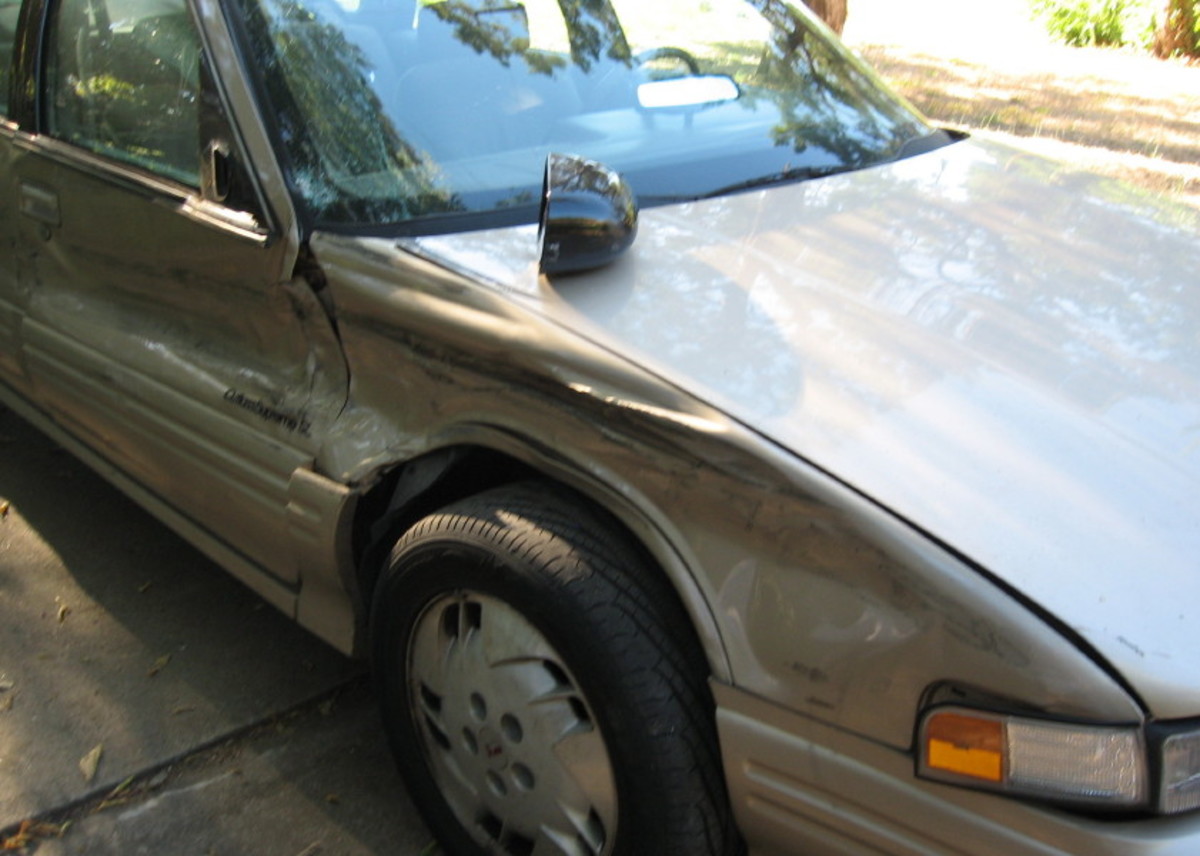Landlord Insurance and What it Covers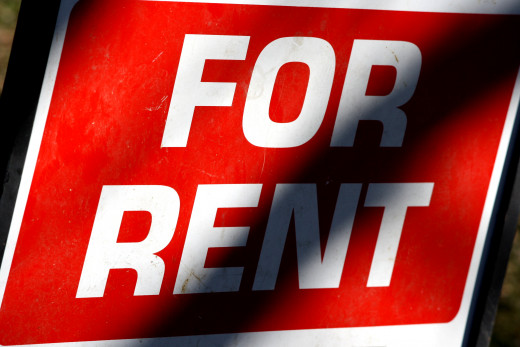
Landlords should understand what landlord coverage provides and how to minimize the amount they spend on premiums. | Source
Insurance is Vital to New Landlords
If you're relatively new to investing in rental properties, you'll want to protect your investments and keep them profitable. Your landlord insurance policy is an important way to shield yourself from catastrophic damage, but high premiums can erode your bottom line.
You've heard how people with a gripe "sue the deepest pockets", right? Welcome to the DPC - the Deep Pockets Club. Even though you don't really have untold wealth - at least, not yet - your tenants may see you that way.
Here's a primer on how to protect yourself and your property with landlord insurance, with tips on saving money on your premiums.
About Landlord Insurance
Focused on your structure with little regard for personal property
Covers 1-4 units (single family, duplexes, triplexes, and fourplexes)
Limits your personal liability (protection from lawsuits)
What is Landlord Insurance?
When I acquired my first rental property, I called my insurance company and said I needed landlord insurance. The agent I spoke with expressed confusion. "Do you mean you need a fire policy?"
After some discussion, I learned that what I thought of as a landlord policy was the same thing my insurance company called "fire coverage." Basically, a fire policy doesn't merely cover a building and its contents. In fact, it may cover no contents at all!
Over the last few years, though, the reverse has been true. If I say I want a fire policy, I hear confusion on the other end of the line. Today, it's easiest to say that I want a policy to protect a landlord from loss, because no matter what an insurance company calls this type of policy, it covers the same basic things:
Loss to the property itself because of accidents
Additional structures on the property, such as detached garages or sheds
Medical payments on behalf of someone injured on the property
Personal liability coverage to limit what you can be held responsible for
Basic Info and What to Look for in an Insurance Company
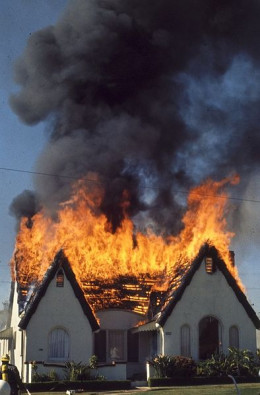
If a tenant starts a fire accidentally, your landlord insurance would cover your structure, but their items would only be protected if they have renter's insurance. |Source
IMPORTANT:
You must convert to a landlord policy if you rent out your house and have a mortgage on it. If you cancel your insurance, your mortgagor can place forced insurance at a much higher rate and foreclose on you if you refuse to pay it.
If you maintain your homeowner policy without converting it, and later need to file a claim, the insurance company may refuse to honor the claim if you are not the property's primary occupant!
Compare Homeowners Insurance to Landlords Insurance
The questions an insurance company will ask about the property are similar in many ways for both types of policies. They'll want to know how the structure is built:
Size (square footage and number of stories if it's not a standard, single family floorplan)
Age of house
Foundation type (basement, crawlspace, slab)
Type of construction (framed, modular, concrete)
Type of exterior (wood, aluminum, or vinyl siding, brick, masonry)
What kind of roof it has (composition shingles, slate, clay or concrete tile, tar and gravel, or wood shake) and when it was installed or replaced
What flooring materials are present
What kind of electrical service it has (modern copper wiring, older aluminum wiring, or knob and tube fuses present)
What heat source(s) may be present, including furnaces, fireplaces, wood burning stoves, and older systems like oil heating devices
Any additional safety devices, such as smoke alarms or burglar alarms
Any additional safety risks, like dogs, swimming pools, or other "attractive nuisances" that might appeal to children in particular.
Any upgrades to the property that would require special consideration if the structure had to be rebuilt (custom bathrooms, for instance)
Once they have this information, your insurer will calculate "replacement cost," which is far higher than what you paid for the property. This dollar amount takes into consideration what it would cost to demolish the structure, remove and dispose of debris, and rebuild it in its entirety. (Replacement cost policies are most common, but there are other types I'll address shortly.) Your insurance quote is based off the replacement cost for your property.
Some companies will send an inspector to report on the property's condition, too. This can result in paying a higher premium, which I'll discuss soon.
The differences between homeowners insurance and a fire policy are related to what the insurance company will pay for. Your tenants' belongings will not be protected by your landlord coverage. They're expected to purchase inexpensive renter's policies for themselves, something that savvy landlords place in their leases as a tenant requirement.
Other than this difference, however, the coverage is largely the same. You'll have a deductible to pay if you file a claim. Deductibles may be $500, $1,000, or a larger amount. The higher your deductible, the lower your annual cost for insurance. Of course, you should choose a deductible that you can afford. If you choose a $5,000 deductible, for instance, your premiums may be dirt cheap, but it wouldn't make sense to file most claims, because the repair cost would be less than your deductible.
Like with your homeowner's policy, there will be coverage limits. Here is a sample of coverage limits for one of the properties I own - a foreclosure I purchased for about $43,000 and spent another $20,000 for repairs and updates:
Replacement Cost: $178,000
Other structures $17,800
Personal Liability (each occurrence) $300,000
Medical Payments to Others $5,000
Deductible: $1,000

A crack in the sidewalk could result in being sued. Smart investors maintain landlord insurance for this protection even if they own their property free and clear. | Source
Your Opinion
How important do you think landlord insurance is for an investor?
Very. It would be foolish not to maintain a policy.
Somewhat. It's not as useful as it might seem.
Not very. It doesn't provide enough benefit to offset the costs of keeping a policy.
Don't know / don't care / I'm not an investor.See results without voting

Insurance companies hold a vast amount of wealth in their hands. The gold adorned Met Life building is one symbol of this. Do you know how to save? | Source
Inexpensive Ways to Save on Landlord Insurance

Zircon 63931 Leak Alert Electronic Water Detector Batteries Included, 3-Pack
Leak sensors won't prevent or fix a water problem, but they'll notify you before other problems like mold or damaged drywall become a problem. Some insurers offer discounts for this reason.
Buy Now


Fortress Security Store (TM) S02-A Wireless Home Security Alarm System DIY Kit with Auto Dial
Security systems mitigate risk from intruders. You may be able to save on your insurance AND use this to make your rental property more appealing to potential tenants.
Buy Now

How to Lower Your Premiums on Landlord Insurance
There are some steps you can take to lower your premiums. They are:
Multi-policy discounts
Safety features discounts
Type of policy
Let's look at each one.
Multi-Policy Discounts
Your insurer probably offers a discount on your coverage if you have multiple policies with the company. Keeping your auto coverage, homeowner's insurance, and landlord policy in the same place typically saves about ten percent of your total amount of yearly premiums.
Remember, though, the name of the game is "money!" Some insurance companies refuse to provide landlord coverage if you do not have your primary home insured with them. This was a real problem for me when I remarried and moved into my new husband's home. I was not on the title of his house, and he was not on the deeds for my rental properties! I would have faced the same problem if I'd rented instead of buying my house when I relocated, because I owned investment properties but wouldn't have owned the place where I lived. My husband and I added his house to my existing policy, but we're now spending $1,500 a year more than we were previously as a result.
Safety Features
Your premiums will be lower if you have a burglar alarm system and smoke detectors. Be sure to ask your insurer for discounts if you have other safety devices, too, such as fire extinguishers in the kitchen and garage. Other hidden savings to look for:
Newer roof (some companies refuse to insure a property if the roof is more than ten years old).
Impact-resistant roofing can lower your costs. A high number of recent hail damage claims in the midwest are responsible for much higher premiums over the last two years than I paid in the several years before we had severe weather damage.
Gated communities mean lower risk for the insurance company.
Some companies discount for properties that belong to a homeowner association.
Renovation credits if you fix or update something that created a safety hazard, such as missing handrails for stairs or leaky plumbing.
Sensors that detect water or gas leaks may provide discounts with some insurers
Type of Policy
Besides a replacement cost policy, you could obtain a market value policy if your insurer offers one (not all do) or reduce your amount of coverage on the replacement policy you were quoted. However, these techniques can be risky, so consider them carefully and avoid them if your property is potentially high risk.
Market value policies cover a maximum up to the market value of a property - what a typical buyer in the marketplace would pay for the property. Demolition, debris removal, and rebuilding expenses would not be covered.
Some financial guides recommend keeping a replacement policy, but reducing coverage to 80 or 90 percent. At one time, this was a sound principle because insurers would pay for the full amount of coverage plus up to twenty percent more if a total loss occurred. Today, they will pay only a maximum of 80% of the actual replacement costs, meaning you would be responsible for 20% of the expenses.
Let's take a look at how this would work on a little foreclosure I got for a very low price. I paid $15,000 for the property because I knew the bank's Vice President, who told me that the former owner had paid off all but a few years of the mortgage before she died. Her children refused to continue paying it, and let it go into foreclosure. I snapped it up, my husband replaced the plumbing and we installed a new air conditioner and furnace. With a little paint, it would have sold for about $50,000, but instead we rented it.
My landlord policy suggests a replacement cost of $176,000, (which is too high in my opinion!)
If lightning struck the house and burned it to a degree that was considered a total loss, here are how these policies would and wouldn't provide coverage:
Normal replacement cost policy: Let's say that demolition, debris removal, and rebuilding charges totaled $140,000. My existing policy would pay 100% of the costs after I paid my deductible. If the total cost was $180,000, I would pay my deductible, the insurer would pay slightly more than my covered amount - $179,000 instead of $176,000 - and I would owe nothing else.
If I reduce the amount of coverage to 80% of replacement cost and faced the same total loss, the insurance coverage would look far different. I would be responsible for $28,000 if the costs only came to $140,000, even though 80% of the covered replacement cost is $140,600. The company would only pay a maximum of 80% of actual costs.
If I obtained a market policy instead (my current company doesn't offer this option), the insurance company would determine what similar houses typically sell for and offer me that amount, which in this case would be around $50,000. I would be responsible for any demolition, debris removal, or rebuilding at my own expense.
Is Landlord Insurance Worth Having?
Buying insurance coverage is like gambling on how likely you are to be struck by problems. In all my years of property ownership, I've only filed one claim that paid a few thousand dollars to fix an outbuilding that was struck by a very large tree. I have paid many thousands of dollars in insurance premiums, however!
I would prefer to pay that premium into an account and use that account to pay for losses, because I would save a ton of money. So why don't I do that?
The reason is simple. If someone falls and cracks their head open, I could pay their medical bills and be done with it... as long as they don't decide to sue me because there's a crack in the sidewalk or an ice patch that they didn't see that they claim is my fault because I didn't have enough light in the area. The costs of a lawsuit can be extremely high, and the personal liability coverage provided in my landlord coverage ensures that the company that charges the big bucks to insure my property will have to handle that fight instead of me.
They're the deep pockets, not me. I pay them to protect me against tenants who might think I'm the one who can afford to enrich their lives.









